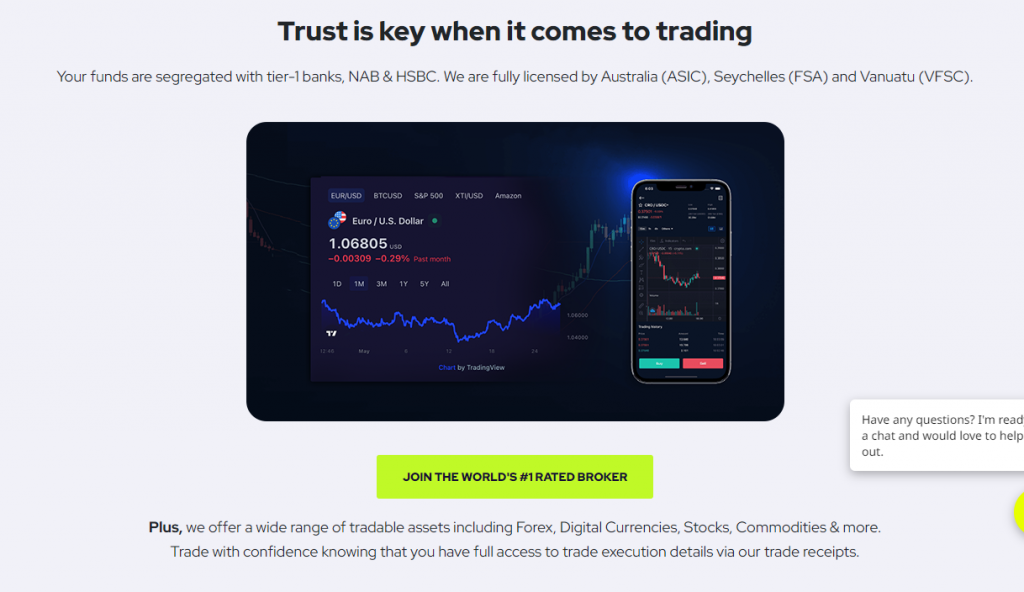Cryptocurrency trading has become a hot topic in the world of finance, attracting both seasoned investors and newcomers alike. With the rise of digital currencies like Bitcoin, Ethereum, and many others, the potential for profit and growth in the crypto market has captured the attention of traders worldwide.
However, navigating the complexities of cryptocurrency trading requires more than just luck. It demands a deep understanding of market dynamics, effective strategies, and valuable insights.
In this blog post, we will delve into the world of crypto, providing you with essential strategies, tips, and insights to help you navigate this exciting and volatile market. Whether you are a beginner looking to dip your toes into crypto trading or an experienced trader seeking to refine your skills, this guide will equip you with the knowledge and tools necessary to make informed trading decisions.
What is Cryptocurrency Trading?
Cryptocurrency trading involves the buying, selling, and exchange of digital assets through various online platforms. Unlike traditional financial markets, cryptocurrencies operate on decentralized networks called blockchains, which ensure transparency, security, and immutability.
Trading cryptocurrencies typically involves speculating on price movements, taking advantage of market volatility, and capitalizing on potential profit opportunities. Traders can engage in various trading strategies, such as day trading, swing trading, and long-term investing, depending on their goals and risk appetite.
Benefits of Crypto Trading
1. Potential for High Returns: Cryptocurrencies have experienced significant price appreciation in the past, providing traders with the opportunity to generate substantial returns on their investments.
2. Accessibility: Cryptocurrency markets operate 24/7, allowing traders to engage in trading activities at their convenience. Additionally, anyone with an internet connection can participate, providing accessibility to a global market.
3. Diversification: Cryptocurrencies offer a unique asset class that can diversify investment portfolios beyond traditional stocks, bonds, and commodities.
4. Technological Innovation: Trading cryptocurrencies allows individuals to be at the forefront of technological advancements and participate in the evolution of the digital economy.
Risks of Crypto Trading
1. Volatility: Cryptocurrency markets are highly volatile, characterized by rapid price fluctuations. While volatility presents profit opportunities, it also carries the risk of significant losses.
2. Regulatory Uncertainty: Regulatory frameworks for cryptocurrencies are still developing in many jurisdictions, leading to uncertainty and potential risks associated with changing regulations.
3. Security Risks: The decentralized nature of cryptocurrencies makes them susceptible to hacking, fraud, and cyber attacks. Traders must implement robust security measures to protect their digital assets.
4. Lack of Fundamental Analysis: Traditional fundamental analysis, which relies on company financials and economic indicators, may be limited for cryptocurrencies due to their unique nature. Traders must rely more heavily on technical analysis and market sentiment.
The Role of Brokers and Exchanges in Cryptocurrency Trading
Brokers and exchanges play a vital role in facilitating cryptocurrency trading by providing platforms for buying, selling, and exchanging digital assets. Here’s an overview of their roles:
Brokers
Cryptocurrency brokers act as intermediaries between traders and the cryptocurrency market. They provide user-friendly platforms that enable traders to execute trades, access market data, and manage their portfolios. Brokers may offer additional features such as margin trading, stop-loss orders, and advanced charting tools to enhance the trading experience.
Best Broker for Crypto Trading
As a Crypto trader, choosing the right broker is crucial for success. Among the numerous options available, one platform that stands out is Binance. With its extensive range of features and user-friendly interface, Binance has established itself as a leading crypto broker.
One of the key advantages of Binance is its wide selection of cryptocurrencies available for trading. Whether you’re interested in popular coins like Bitcoin, Ethereum, or Ripple, or prefer to explore newer altcoins, Binance offers a vast array of options.
Additionally, Binance provides a seamless trading experience through its intuitive platform. The user interface is designed to be beginner-friendly, making it easy for newcomers to navigate and execute trades. Advanced traders will also appreciate the platform’s robust charting tools and order types, which allow for more sophisticated trading strategies. Furthermore, Binance offers competitive fees, ensuring that traders can maximize their profits.
Exchanges
Cryptocurrency exchanges are platforms where buyers and sellers come together to trade digital assets. Exchanges serve as marketplaces where traders can place buy or sell orders and execute trades. They provide order matching, liquidity, and secure storage for cryptocurrencies. Exchanges can be centralized or decentralized, with varying levels of user control and security.
Traders need to choose reputable and reliable brokers or exchanges that prioritize security, offer a wide range of cryptocurrencies, and provide excellent customer support.
Trading Approaches: Hodling vs. Speculation
Hodling, a term derived from “hold,” refers to a long-term investment strategy in cryptocurrencies. Hodlers believe in the long-term potential of a particular cryptocurrency and aim to accumulate and hold onto it over an extended period.
On the other hand, Speculation in cryptocurrency trading involves taking advantage of short-term price movements and market volatility to maximize profits. Speculators actively buy and sell cryptocurrencies based on technical analysis, market trends, and other indicators.
Benefits of Hodling
1. Ride the Upside Potential: Hodlers aim to benefit from the long-term upward trajectory of cryptocurrencies. By holding through market cycles, they have the opportunity to capture substantial returns when the prices surge.
2. Reduced Transaction Costs: Hodling requires fewer transactions compared to frequent trading, resulting in lower transaction fees and potentially saving on costs associated with short-term trading strategies.
3. Emotional Stability: Hodling reduces exposure to short-term market fluctuations that can cause emotional stress and impulsive decision-making.
Drawbacks of Hodling
1. Volatility: Hodling exposes investors to the inherent volatility of the cryptocurrency market. Prices can experience significant fluctuations, and investors must be mentally prepared for potential price declines during market downturns.
2. Opportunity Cost: By hodling a specific cryptocurrency, investors may miss out on short-term trading opportunities and potential profits that could be gained by actively participating in the market.
Benefits of Speculation
1. Profit from Volatility: Speculators capitalize on short-term price movements, regardless of the overall market direction. They can profit from both upward and downward price trends by taking long or short positions.
2. Multiple Trading Opportunities: Speculation provides the opportunity to actively engage in the market, identifying and executing trades based on technical analysis and market conditions.
3. Potential for Quick Returns: Speculative trading can yield rapid returns, allowing traders to take advantage of short-term price spikes or market inefficiencies.
Drawbacks of Speculation
1. Higher Risk: Speculative trading involves higher risks due to the short-term nature of trades and the potential for significant price fluctuations. Incorrect predictions or market timing can lead to losses.
2. Increased Transaction Costs: Frequent buying and selling of cryptocurrencies can result in higher transaction costs, including fees for executing trades and potential slippage.
3. Emotional Challenges: Speculative trading can be emotionally demanding, requiring discipline, a strong understanding of technical analysis, and the ability to manage stress during volatile market conditions.
Examples of Cryptocurrency
Bitcoin
Bitcoin is the world’s first and most well-known cryptocurrency, created in 2009 by an anonymous person or group using the pseudonym Satoshi Nakamoto. It operates on a decentralized network called the blockchain, which ensures transparency, security, and immutability of transactions. Bitcoin’s unique features have led to its widespread adoption and recognition as the digital gold of the cryptocurrency market.
Bitcoin (BTC) Alternatives
Here are some popular Bitcoin alternatives:
1. Ethereum (ETH): Ethereum is the second-largest cryptocurrency by market capitalization and is known for its smart contract functionality and decentralized applications (dApps).
2. Ripple (XRP): Ripple is a digital payment protocol and cryptocurrency that aims to facilitate fast and low-cost international money transfers.
3. Litecoin (LTC): Created by Charlie Lee, Litecoin is often referred to as the “silver to Bitcoin’s gold” and offers faster transaction confirmation times and a different hashing algorithm.
4. Cardano (ADA): Cardano is a blockchain platform that aims to provide a secure and scalable infrastructure for the development of decentralized applications and smart contracts.
5. Binance Coin (BNB): Binance Coin is the native cryptocurrency of the Binance exchange and is used for discounted trading fees, token sales, and other services within the Binance ecosystem.
6. Polkadot (DOT): Polkadot is a multi-chain platform that enables different blockchains to interoperate and share information, allowing for scalability and innovation in the blockchain space.
7. Chainlink (LINK): Chainlink is a decentralized oracle network that connects smart contracts with real-world data, enabling them to interact with external systems and APIs.
8. Stellar (XLM): Stellar is a blockchain platform designed for fast and low-cost cross-border payments, with a focus on financial inclusion and serving the unbanked population.
9. Filecoin (FIL): Filecoin is a decentralized storage network that allows users to rent out their unused storage space and earn FIL tokens in return.
10. Solana (SOL): Solana is a high-performance blockchain platform that aims to provide fast and scalable solutions for decentralized applications and crypto projects.
11. Avalanche (AVAX): Avalanche is a decentralized platform that aims to provide high-performance and scalable solutions for decentralized applications and enterprise use cases..
12. Uniswap (UNI): Uniswap is a decentralized exchange protocol built on the Ethereum blockchain, allowing users to trade ERC-20 tokens directly from their wallets.
13. VeChain (VET): VeChain is a blockchain platform that focuses on supply chain management and aims to enhance transparency and traceability in various industries.
14. Dogecoin (DOGE): Initially created as a meme cryptocurrency, Dogecoin has gained popularity for its active community and has been used for charitable causes and tipping content creators.
15. Tezos (XTZ): Tezos is a self-amending blockchain platform that allows for on-chain governance and the creation of smart contracts.
16. IOTA (MIOTA): IOTA is a distributed ledger technology designed for the Internet of Things (IoT), enabling secure and feeless transactions between devices.
17. Neo (NEO): Neo is a blockchain platform that aims to digitize assets and automate the management of digital identities, with a focus on regulatory compliance.
18. EOS (EOS): EOS is a blockchain platform that aims to provide a scalable infrastructure for decentralized applications, with a focus on user-friendly development and governance.
19. Cosmos (ATOM): Cosmos is a network of interconnected blockchains that aims to enable seamless communication and interoperability between different blockchain platforms.
20. Monero (XMR): Monero is a privacy-focused cryptocurrency that aims to provide secure and untraceable transactions, making it popular among users seeking enhanced privacy.
Popular Cryptocurrency Pairs for Speculative Trading
Speculative trading in cryptocurrencies often involves trading pairs, where traders buy one cryptocurrency and sell another simultaneously. In this section, we will explore different cryptocurrency trading pairs, discuss the importance of analyzing market trends and historical data, and provide examples of successful crypto pairs for speculative traders.
Cryptocurrency Trading Pairs
Cryptocurrency trading pairs consist of a base currency and a quote currency. The base currency represents the cryptocurrency being bought or sold, while the quote currency is the currency used to determine the price. Here are some common types of cryptocurrency trading pairs:
- BTC/USD: Bitcoin to US Dollar
- ETH/BTC: Ethereum to Bitcoin
- XRP/ETH: Ripple to Ethereum
- LTC/USD: Litecoin to US Dollar
- BCH/BTC: Bitcoin Cash to Bitcoin
These are just a few examples of the numerous trading pairs available across different cryptocurrency exchanges. It’s important to choose pairs that align with your trading strategy and offer sufficient liquidity.
Perpetual Contracts vs. Futures Contracts – Understanding the Difference
Perpetual Contracts
A Perpetual contract is a type of derivative contract that allows traders to speculate on the price of an underlying asset, such as a cryptocurrency, without an expiration date. These contracts are designed to closely track the spot price of the underlying asset through a funding mechanism.
Key Features of Perpetual Contracts
1. No Expiration: Unlike futures contracts, perpetual contracts do not have a fixed expiration date. They provide traders with the flexibility to hold positions for as long as desired.
2. Funding Mechanism: Perpetual contracts employ a funding mechanism to ensure the contract price remains aligned with the underlying asset’s spot price. Funding payments are exchanged between long and short position holders periodically, maintaining equilibrium in the contract’s value.
Advantages of Perpetual Contracts
1. Flexibility: Perpetual contracts offer traders the ability to hold positions for an extended period, aligning with their trading strategies and market expectations.
2. No Rollover Costs: Since perpetual contracts do not have an expiration date, traders avoid the costs and complexities associated with rolling over futures contracts as they approach expiration.
Futures Contracts
Futures contracts are standardized derivative contracts that oblige traders to buy or sell an underlying asset at a predetermined price and specified date in the future. In the context of cryptocurrencies, Bitcoin futures contracts are particularly popular.
Key Features of Futures Contracts
1. Expiration Date: Futures contracts have a fixed expiration date, specifying when the contract must be settled. Upon expiration, traders are obligated to buy or sell the underlying asset at the predetermined price.
2. Settlement: Futures contracts can be settled in two ways: cash settlement or physical delivery. Cash settlement involves the exchange of the contract’s price difference, while physical delivery requires the actual delivery of the underlying asset.
Advantages of Futures Contracts
1. Price Discovery: Futures contracts contribute to price discovery and market transparency by providing a standardized platform for trading and determining the future price of the underlying asset.
2. Risk Management: Futures contracts allow traders to hedge their positions, mitigating the risk associated with adverse price movements. Traders can lock in prices for future transactions, reducing exposure to price volatility.
Factors Influencing Cryptocurrency Prices
In this section, we will summarize the key factors that can move cryptocurrency prices, providing a comprehensive overview of the cryptocurrency market.
Government Policies and Regulations
1. Legal Status: The legal recognition and acceptance of cryptocurrencies by governments and regulatory bodies can impact market sentiment and adoption.
2. Regulatory Changes: Changes in regulations, such as the introduction of new laws or the tightening of existing regulations, can affect cryptocurrency prices.
3. Government Actions: Bans, restrictions, or endorsements of specific cryptocurrencies or blockchain projects can influence market sentiment and prices.
Technological Advances and Developments
4. Upgrades and Improvements: Technological advancements and improvements in underlying blockchain networks can enhance scalability, security, and functionality, driving prices higher.
5. Partnerships and Integrations: Collaborations between cryptocurrency projects and established companies or institutions can increase visibility, credibility, and utility, positively impacting prices.
6. Development Milestones: The achievement of significant milestones, such as mainnet launches or successful completion of roadmaps, can generate positive sentiment and drive prices upward.
7. Market Adoption: Increasing acceptance and real-world use cases of cryptocurrencies can demonstrate their practical value and utility, potentially leading to price appreciation.
Market Sentiment and Investor Behavior
8. Investor Confidence: Market stability, security of exchanges and wallets, and regulatory clarity influence investor confidence, affecting cryptocurrency prices.
9. Media Coverage: News articles, social media discussions, and influential figures’ statements can significantly impact market sentiment and prices.
10. Speculative Trading: Short-term traders and speculators reacting to market trends and price movements can contribute to market volatility and influence prices.
Market Manipulation
11. Manipulative Practices: Cryptocurrency markets are susceptible to manipulative practices such as pump-and-dump schemes or market manipulation by large traders, distorting prices and misleading participants.
Economic Factors
12. Macroeconomic Conditions: Inflation rates, economic instability, and geopolitical events can create market uncertainty and impact investor sentiment, influencing cryptocurrency prices.
Supply and Demand
13. Supply Dynamics: Factors such as limited supply, changes in circulating supply, mining rewards, token emissions, or coin burns can impact cryptocurrency prices.
Tips for Successful Cryptocurrency Trading
Cryptocurrency trading can be both exciting and challenging. To increase your chances of success in this dynamic market, consider the following tips:
1. Educate Yourself: Continual learning is crucial for navigating the cryptocurrency market effectively. Stay updated on market trends, news, and developments. Understand fundamental and technical analysis concepts to make informed trading decisions.
2. Develop a Strategy: Define a clear trading strategy based on your risk tolerance, investment goals, and time horizon. Determine your preferred trading approach, whether it’s day trading, swing trading, or long-term investing.
3. Risk Management: Implement effective risk management techniques to protect your capital. Set stop-loss orders to limit potential losses, diversify your portfolio to spread risk, and avoid investing more than you can afford to lose.
4. Use Technical Analysis: Learn and utilize technical analysis tools and indicators to identify trends, support and resistance levels, and potential entry and exit points. Technical analysis can help you make more informed trading decisions.
5. Stay Informed: Keep up with the latest news, market trends, and regulatory developments. Stay connected with reliable cryptocurrency communities, reputable news sources, and social media platforms to stay informed about market sentiment and potential opportunities.
6. Embrace Volatility: Cryptocurrency markets are known for their volatility. Embrace volatility as an opportunity for potential profit. However, remain cautious and avoid making impulsive decisions based on short-term price fluctuations.
7. Choose a Reliable Exchange: Select a reputable and secure cryptocurrency exchange that offers a user-friendly interface, robust security measures, and reliable customer support. Ensure the exchange has a wide range of cryptocurrencies and necessary trading features to meet your needs.
8. Practice Risk-Averse Trading: Start with small trade sizes and gradually increase your position as you gain experience and confidence. Avoid chasing quick gains or succumbing to fear of missing out (FOMO). Maintain a disciplined and patient approach.
9. Maintain Security: Implement strong security practices to protect your cryptocurrency holdings. Use hardware wallets or secure software wallets for storage. Enable two-factor authentication (2FA) and regularly update your security measures.
10. Join a Community: Engage with like-minded traders and join reputable cryptocurrency communities to share knowledge, insights, and experiences. Collaborating with others can provide valuable perspectives and help expand your understanding of the market.
Attend Our Trading Webinars
We invite you to our tri-weekly trading webinar of cryptocurrency traders. By becoming a member, you can connect with fellow traders, exchange insights, and gain access to valuable resources and market analysis. Together, we can navigate the cryptocurrency market and support each other’s journey towards successful trading.








